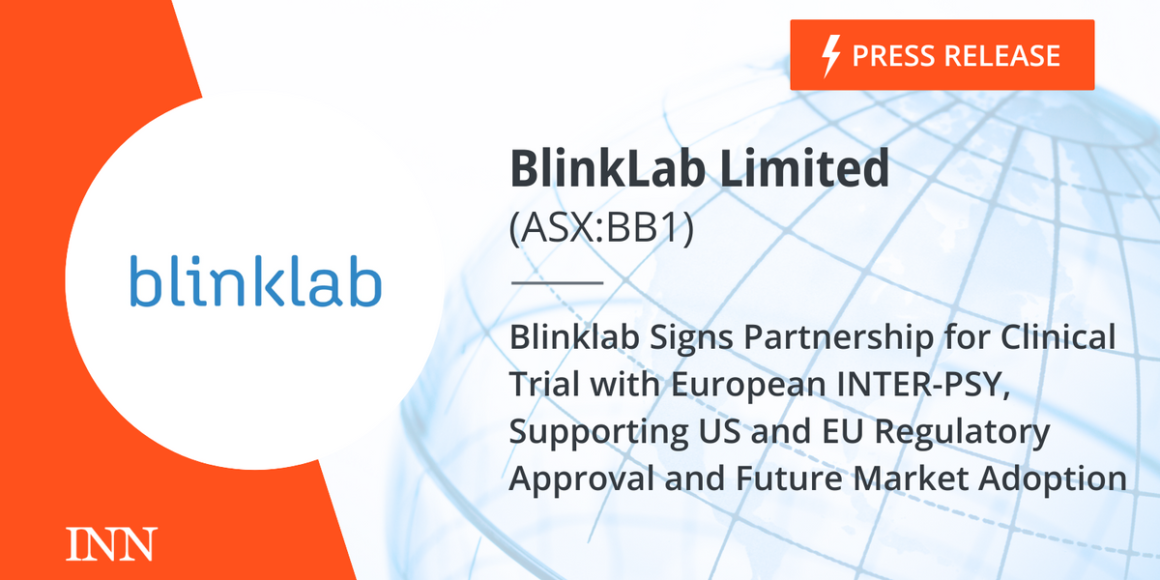Highlights
As part of the Agreement, INTER-PSY will run a prospective study on the ability of the BlinkLab app to aid in diagnosis of autism in children between 2-6 years of age that are referred to INTER-PSY. By analysing the behavioural and physiological responses collected via the app, BlinkLab will aim to identify autism characteristics, potentially offering patients a more rapid, accessible and objective assessment method.
Through this partnership, INTER-PSY will use BlinkLab’s technology to evaluate whether the technology can enhance their diagnostic accuracy and efficiency in the clinic. This partnership between BlinkLab and INTER-PSY demonstrates the potential of an AI mobile health platform to improve and accelerate mental health diagnostics.
INTER-PSY Study and Preparations for FDA 510(k) Regulatory Trial
The INTER-PSY study, which mirrors the design of the upcoming FDA regulatory trial, will be conducted as a single-site, prospective, double-blind, within-subject comparison study (pre- registered). Data gathered from this collaboration will be pivotal in refining the final experimental parameters and optimising machine learning algorithms for BlinkLab’s 510(k) FDA registrational study, specifically targeting diagnostic applications. INTER-PSY is a large autism expertise centre in the Netherlands, offering diagnostics, guidance, and treatment for young children, adolescents, adults, and the elderly with psychological and psychiatric complaints.
Els Blijd-Hogewys, INTER-PSY, commented:
“INTER-PSY is committed to supporting young children with autism in an efficient and effective manner. Our goal is to implement a ‘no waiting time policy’ between diagnosis and the start of therapy, working collaboratively with clients to help them take control of their lives and minimise the impact of autism on daily tasks. Integrating objective measurements can help in the diagnostic process, offering significant benefits to children, their families, and our providers. We believe that BlinkLab’s innovative AI platform presents a promising solution for sensory assessments in autism, delivering a short, pleasant and child-friendly test experience. Research will be conducted at INTER-PSY’s Expertise Team for Young Children (<6 years). In the future, the instrument could also be valuable for adults with autism.
Unfortunately, the waiting lists for autism assessment for adults in the Netherlands are often as long as 2 to 3 years. Such an instrument may help accelerate this process.”
Mr. Brian Leedman, Chairman BlinkLab, commented:
“Australia has comparable wait times for diagnosis of autism as experienced in Europe and the US. Our BlinkLab technology has the potential to significantly reduce wait times through early diagnosis resulting in treatment at a formative age where early intervention can lead to better outcomes for children and their caregivers.”
Dr. Henk-Jan Boele, CEO BlinkLab, commented:
“Our collaboration with INTER-PSY is one of the final steps in the prospective validation of BlinkLab’s platform before we commence our FDA registration trial later this year. I’m deeply appreciative of INTER-PSY’s partnership on this critical journey. As part of the large SCANNER consortium in Europe, this study with INTER-PSY will also specifically address autism diagnosis in females. Our BlinkLab team is in the final phase of fine-tuning our AI models and algorithms to ensure they meet the highest standards of accuracy, safety, and efficiency. We remain fully committed to executing our strategy and delivering long-term value to all our stakeholders.”
About the SCANNER Consortium
The SCANNER Consortium in Europe, of which BlinkLab is a member, was recently awarded with a 5.3M Euros grant from the Dutch Research Council. The mission of this consortium is to investigate sex differences in autism at a gene, brain and behaviour level. Autism is diagnosed four times more often in men than in women (Autism Spectrum Disorder, APA, 2013). However, little is known about the biological mechanisms behind this disparity, or to what extent this overrepresentation in males is due to bias in the medical research that is also present during the diagnostic process.
Historically, female participants have often been excluded from medical studies, resulting in data being collected primarily from men and generalised to women (Merone et al., 2022).
Similar biases are present in basic research, where men are overrepresented due to the lack of the estrus cycle, resulting in a large gap in our basic biological and clinical knowledge.
This translates into real-life disadvantages for women with neurodivergent conditions, as doctors often ignore the behaviours presented by women. This means that women are less likely to be referred for diagnostic tests and receive timely support, with long-lasting negative consequences for their quality of life. It is therefore crucial to involve women at all levels of research.
Dr. Aleksandra Badura, Lead Investigator SCANNER, commented:
“Within SCANNER we aim to understand how genetic, neurophysiological and behavioural sex differences contribute to autistic traits, and distinguish these biological factors from possible diagnostic bias. Our long-term goal is to improve the diagnostic process for autism and other neurodivergent disorders by taking sex differences into account at all levels of research and diagnosis.”
In addition to INTER-PSY, BlinkLab collaborates in the SCANNER Consortium with Vrije Universiteit Amsterdam; Karakter – Academic Center for Child and Adolescent Psychiatry; Radboud University; Medical Center, Radboud University; Universiteit Utrecht; HAS green academy; Erasmus MC; Netherlands Institute for Neuroscience; Nivel – Netherlands Institute for Health Services Research; University of Twente; Philips Medical Systems Nederland B.V. (Philips MR); Nederlandse Vereniging voor Autisme; Arivis, Noldus Information Technology; Sophia Foundation; WOMEN Inc.; Female Autism Network of the Netherlands; Netherlands Autism Register; Generation R; National association of general practice mental health professionals; Alliantie Gender & Gezondheid; National network autism in young children; National network of child and adolescent psychiatry; Special Olympics Netherlands.


Leave a Reply